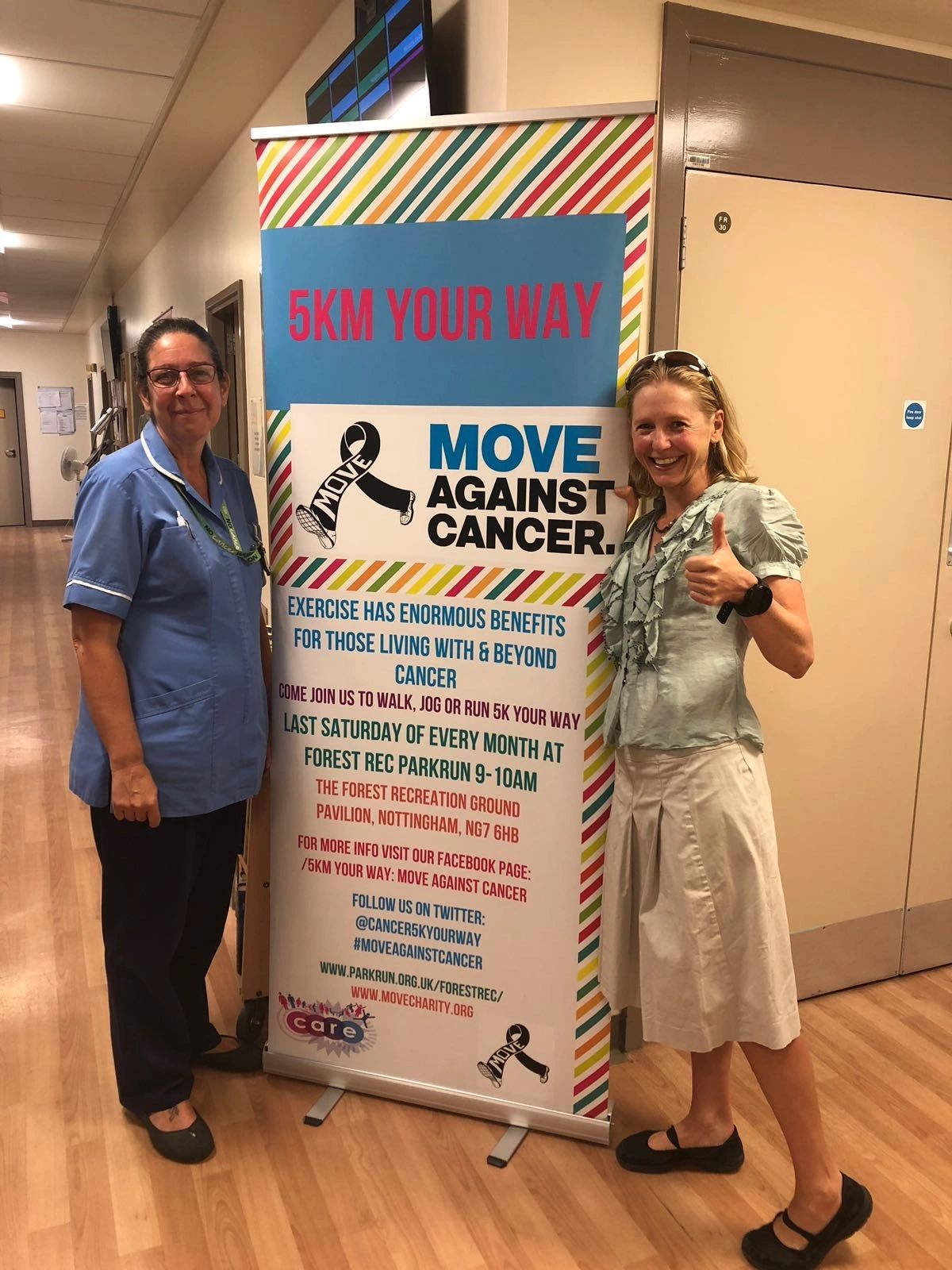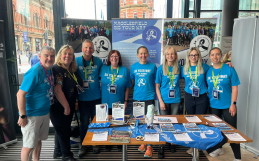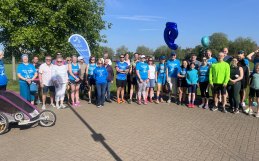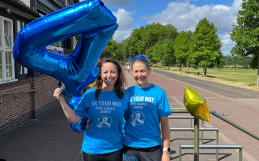As oncologists we’re used to saying sorry.
“I’m so sorry but your scan has shown the cancer is back”.
“I’m so sorry but your treatment has stopped working”.
“I’m so sorry but your cancer isn’t curable”.
These are never easy words and it always hurts to say them, knowing that by doing so you’re shattering someone’s world. But these are words that are part of our job. Breaking bad news is something we do regularly. Something I hope we do well.
But as oncologists, we’re not used to apologising for a broken system. And that, right now, is what we’re doing every day.
This is not OK. Our patients are not OK. We are not OK.
“I’m so sorry, but your scan is not yet reported”. Such a simple sentence yet one with so many implications for the person sitting opposite, who has been waiting anxiously for 2, 3, sometimes 4 weeks for the results that would allow them perhaps to sleep easily, to breathe fully, to plan to live again for the next few months. Sometimes they get angry but more often than not, it’s their partner who gets angry. Raw, justifiable anger. They know how anxious their loved one has been since their scan. Sometimes they’re just sad. Sometimes, and perhaps this is the hardest, they bat back our apology and tell us they know we’re all trying our best. But right now, our best, the best of every single person in the creaking rusty cogs of the NHS is not good enough.
We always knew COVID-19 would change oncology immeasurably; I’ve written about this before. But right now, for many of us, the care we are able to offer our patients with cancer is worse than it’s been at any point since COVID-19 first hit the UK. Early in the pandemic, we were asked to prioritise cancer treatments from priority one (curative treatment) to priority six (non-curative treatment with a small chance of palliation or temporary tumour control). This prioritisation system has been used intermittently across the country during the pandemic but where I work, though capacity to deliver chemotherapy has been exceptionally tight at times, we’ve never had to use it. Until now. Right now we don’t have the staffing capacity to deliver chemotherapy to all our patients and so, for the first time, the prioritisation list has come into force. And that means that, currently, we are unable to offer chemotherapy that aims to prolong life or palliate symptoms for many people with advanced cancer. We hope this is very temporary, but it’s indicative of a system on its last legs; as of June 2021 there were 38,952 registered nurse vacancies across the health service*. And this has happened at the end of the summer, well before the NHS winter pressures stockpile.
“I’m so sorry, but we can’t continue with your chemotherapy. Not because it’s stopped working, but because we don’t have enough staff to deliver it”.
“I’m so sorry. There are drugs we could try that might control the cancer for some time but at the moment, we can’t offer these drugs because our hospital doesn’t have the capacity to deliver it”.
The sad reality of advanced cancer is that many of the drugs we use don’t work in a high percentage of patients; we can’t yet predict which patients will benefit and which patients won’t. In practice, the benefit of say 6 courses of chemotherapy over 4 is, for most people, likely to be small. But for those with a life limiting diagnosis, small is everything. And for so many people with cancer, knowing there are options is what allows them to hope.
I can’t imagine what it must be like to sit opposite your oncologist to be told that your treatment is being paused and we don’t know when we can restart it. I can’t imagine what it must be like to sit opposite your oncologist and be told that right now, the NHS can’t provide drugs that might give you a few extra months. I do know how hard it is to have these conversations.
Oncology is not an island. All over the NHS, specialties are battling to be able to provide the care they want to their patients. Since the start of the pandemic, the number of people waiting for NHS treatment in England has grown by a fifth**. Staff shortages in social care mean a disproportionate number of hospital beds are occupied by people who do not need hospital care but are not able to manage at home. Radiologist shortfalls range from 24-38% across the UK***.
“I’m sorry but I can’t provide you with the care I would want to give you”. I suspect every health-care professional in every specialty is making their own apologies every day.
If the NHS is a machine, it’s a machine made of rusty, worn cogs, each churning independently and inefficiently as we try to do the best for our own patients. It’s a machine reliant on the goodwill of its staff, but all the goodwill in the world can’t keep a machine functioning without extensive repairs. Last week, as I was waiting for my lateral flow test, I realised part of me was hoping for a positive result, so I would have an excuse to step off the treadmill for ten days. As a triathlete I was known for my mental toughness; I count myself as resilient and I love my job. But that thought made me realise how close to burnout I am. I know I’m not alone. I talk to my colleagues and friends across the country and realise so many of us feel the same. And this is September, after a summer holiday. It’s not even winter yet.
I love the NHS, I back the NHS and I believe the NHS can still be fixed. I’ve spent many days debating whether I should write this. But the reality is, right now, we’re not delivering a first world cancer service and we need to talk about it.
It is not OK. Our patients are not OK. We are not OK.
The fixing needs to start now.
*https://www.nursingtimes.net/news/workforce/a-bleak-picture-nurse-vacancies-increase-across-english-nhs-26-08-2021/
**https://ifs.org.uk/publications/15557
***https://www.rcr.ac.uk/posts/new-rcr-census-shows-nhs-needs-nearly-2000-more-radiologist










